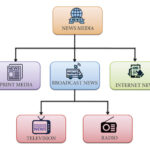
Introduction
Software development is the backbone of modern technology, driving innovation in industries such as healthcare, finance, e-commerce, and more. It encompasses a structured process of designing, coding, testing, and maintaining applications to solve specific problems or enhance business operations. This blog provides a deep dive into software development, its importance, methodologies, best practices, and future trends.
Importance of Software Development
Business Efficiency: Automates tasks and improves productivity.
User Experience: Enhances accessibility and interaction with technology.
Competitive Advantage: Helps businesses stay ahead in the digital landscape.
Security & Data Management: Ensures secure handling of information.
Scalability: Supports business growth with adaptable solutions.
Key Phases of Software Development
1. Requirement Analysis
Understanding the project scope, business needs, and user expectations.
2. Planning & Design
Creating software architecture, wireframes, and user interface (UI) design.
3. Development (Coding)
Writing and implementing code using programming languages like Python, Java, C++, etc.
4. Testing & Debugging
Identifying and fixing bugs to ensure software reliability and security.
5. Deployment & Maintenance
Releasing the software for users and providing continuous updates.
Software Development Methodologies
1. Agile Development
Iterative approach: Delivers software in small, manageable increments.
Collaboration: Encourages teamwork between developers and stakeholders.
Flexibility: Adapts to changes quickly.
2. Waterfall Model
Sequential process: Each phase follows the next in a structured manner.
Clear documentation: Ensures a well-defined project roadmap.
3. DevOps
Continuous integration & deployment: Streamlines software releases.
Automation: Enhances efficiency and reduces manual errors.
4. Scrum
Time-boxed iterations (Sprints): Focuses on delivering small features quickly.
Daily standups: Keeps teams aligned on progress and roadblocks.
Best Practices in Software Development
Write Clean & Scalable Code: Follow coding standards and best practices.
Version Control Systems: Use Git and GitHub for collaborative development.
Automated Testing: Implement unit and integration testing for reliability.
Security Measures: Protect against cyber threats with encryption and authentication.
Documentation: Maintain clear documentation for future maintenance.
Future Trends in Software Development
Artificial Intelligence (AI) & Machine Learning: Enhancing automation and decision-making.
Blockchain Development: Improving security and transparency.
Cloud Computing: Enabling scalable and remote software solutions.
Internet of Things (IoT): Connecting devices for smarter applications.
Low-Code & No-Code Platforms: Allowing rapid development with minimal coding.
Conclusion
Software development is an ever-evolving field that fuels digital transformation across industries. By adopting best practices, leveraging modern methodologies, and staying updated with future trends, developers can create innovative, efficient, and secure software solutions. Whether you are a beginner or an experienced developer, continuous learning and adaptation are key to success in this dynamic domain.











